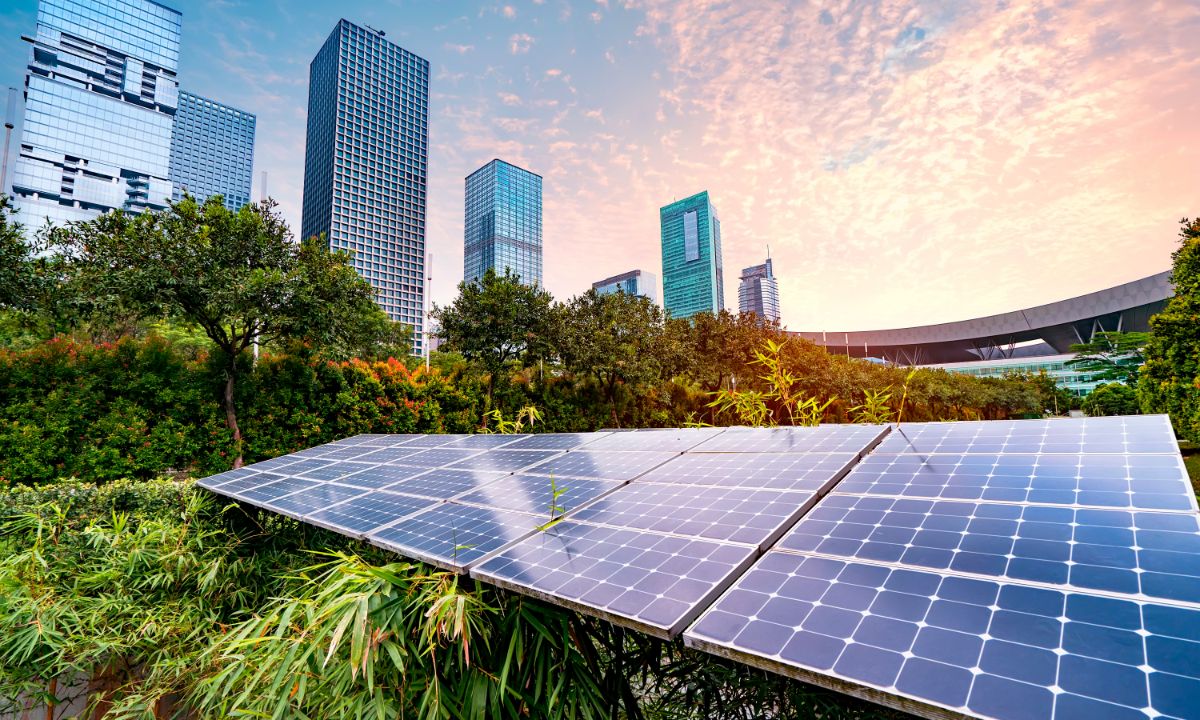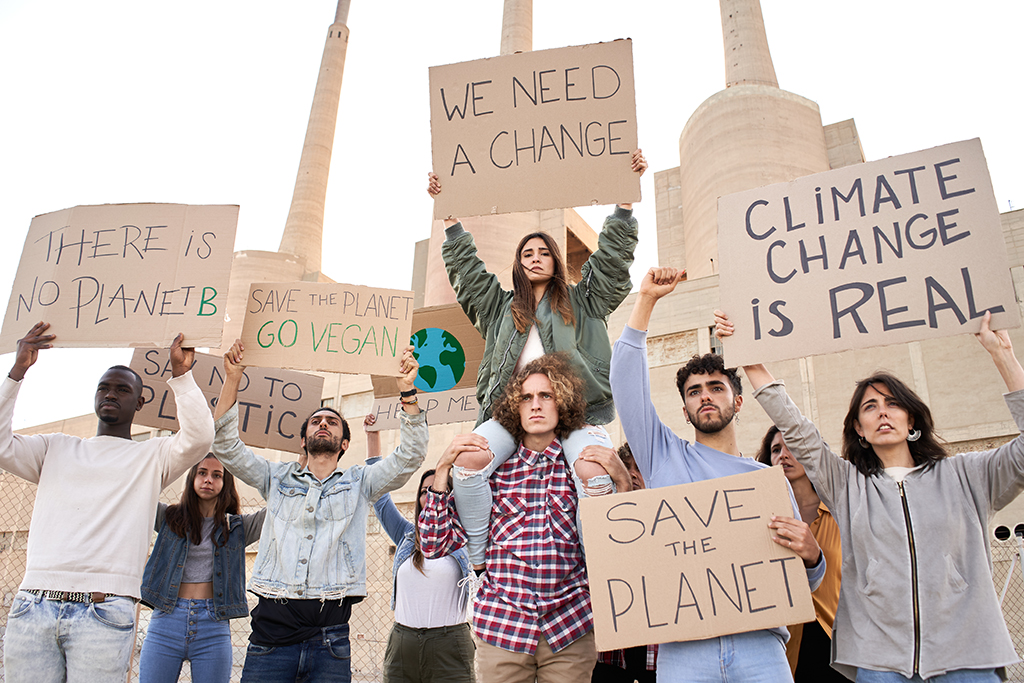
What Are The Major Challenges of Sustainable Growth in Developing Nations?
Achieving sustainable economic growth is a challenge for almost every nation today. The main challenge is how to achieve sustainable growth in a country where poverty and inequality issues remain and slightly less than half of the population does not have access to electricity and the internet.
What is Sustainable Growth?
Sustainable growth is the concept of growth where economic development can be sustained over time without compromising the capacity of natural systems to support economic activity in the future. Sustainable development is the foundation of the United Nations (UN) Sustainable Development Goals (SDGs). It is defined to be the development that meets the requirements of the present with no compromise of the potential of future generations to reach their own needs.
Hence, Sustainable Growth for a country means adapting —
- Utilization of renewable energy.
- Curing the employment issues.
- Food and Water Security.
Why is Sustainable Growth Important?
Sustainable growth is the most significant force driving the growth of any nation. It is the engine of progress, which allows you to increase the value of the country.
Thus, here are some points that make it crucial to take on Sustainable Growth seriously —
- Non-Renewable Resources:
Growth is considered a sign of health in most cases, in recent years, enhancing sustainable growth importance in the eyes of the developing countries. However, the world has seen the effects of rapid industrialization, which has boosted up the use of non-renewable resources, which has ultimately led to the depletion of natural resources, air pollution, deforestation, habitat destruction, climate change, damage to soil quality, water pollution, loss of biodiversity, and species extinction. Hence, it is in the interest of the countries to adopt the concept of sustainable growth.
- Economy:
In the past, developing countries were considered to be a liability to the world, as they were poor and underdeveloped. However, these countries are now progressing at an exponential rate, and they are becoming essential in the world economy. Developing countries can contribute to the world economy by helping to stabilize the world’s economy — something that the world economy needs badly.
With countries all over the world struggling with how to deal with the immense waste problems they face, the circular economy is a solution that could help alleviate some of the economic and environmental strain. The idea is simple: use what you have and get the most out of it while reusing and recycling items as much as possible. Several developing countries have already begun to see their economies grow as a result of their adoption of the circular economy, proving that it can work no matter where it is adopted.
- Food Resources:
At present, more than 795 million people are suffering from hunger worldwide. The world is on course to have food shortages that will have catastrophic consequences for humanity. The study, which is based on projected population growth-, increased consumption of meat, the impact of climate change on crop yields, and the falling water tables, paints a startling picture of the future.
However, it warns that the world is becoming increasingly ill-equipped to achieve this, with “limited scope” for improving farmland. At the same time, 36 percent of cities are likely to face a water crisis by 2050, making it harder to sustain growing populations. Hence, it becomes imperative to take on some strict actions.
Even if we got our entire protein and calcium and iron and everything else we needed from plants, it would still be unsustainable — the amount of land and water and energy required to grow plants and raise slaughter, transport, store, cook and eat them is way beyond what we have available. Thus, taking on sustainable growth again becomes important as we’ll be feeding 9 billion people in the coming future.
What are the Challenges of Sustainable Growth?
There is a huge gap between developed and developing nations, with developing nations having a lot of catching up to do. There are lots of challenges that developing nations face when they try to diversify their industries —
- Poverty and Exclusion:
One of the most important challenges for a country’s sustainable development is poverty. Poverty is a state of human condition which is characterized by severe deprivation of basic human needs, including food, safe drinking water, sanitation facilities, health, shelter, education and information.

Keeping the population problem in mind, we can register that if there is no political will, no sustainable development will be achieved in the next 20 years. Therefore, the world faces huge challenges when it comes to quality of life. Hence, poverty will be one of the biggest challenges for sustainable development. All around the world, some people are living in terrible conditions — without the basic things required to live, such as shelter, water, and food.
Poor people are more vulnerable to climate change because they are less able to cope with extreme weather and natural disasters. They also tend to live in areas where the climate is already vulnerable to change, such as in flood-prone coastal areas or on hillsides. When poor people are hit by natural disasters, they are less likely to recover due to lack of insurance and savings, or simply because they never had these resources in the first place. Thus, poverty remains one of the main hurdles for sustainable development.
- Unemployment:

As a result of being in the poverty class, some people don’t have the opportunity to get an education. These people cannot find jobs, and they cannot support their families.
According to the International Labour Organization (ILO), high-income countries will create 7 million jobs each year to keep up with labour demand. Middle-income countries will need to generate 6 million jobs, while low-income countries will create 5 million jobs.
The ILO also estimates that 6 million jobs will be lost due to automation. Therefore, the key to ending unemployment is to raise productivity in all sectors of the economy, to ensure that the economy is producing enough jobs to match labour demand. Hence, unemployment can be a tough hurdle to take on sustainable development.
- Lack of Technology:
In our modern world, technology seems to be a necessity. But how much is too much? In developing nations, the growth of technology has been stunted. In some places, there is a lack of technology, and those with it lack the infrastructure to support it.
And, obviously — With a lack of technology comes a lack of information, a lack of education and a lack of medical treatment.
Some of the most affected areas include Africa and Asia. Access to technology has allowed these areas to grow and develop, but a lack of infrastructure and support has put a damper on their progress. We live in a global economy, and technology is a huge part of it. Hence, in order to compete, these developing nations must find a way to keep up with technology.
- Building Strong Governance:
Governance is how people and institutions are organized and controlled. Governance is the art of making decisions. The Sustainable Development Goals (SDGs) governance is a major challenge for the United Nations and the countries involved in the process. The SDGs are based on the three pillars of the United Nations: peace and security, sustainable development and human rights. The SDGs have 169 targets and 17 goals, and the list of countries and institutions that pledged to achieve these targets is long and wide. To be successful, the SDGs require a clear and strong governance model with clear and strong ownership and leadership by the countries and institutions involved.
- Supporting the Rule of Law:
An obvious and widespread challenge to sustainable development is the lack of good governance in many countries around the world. In 2014, the World Justice Project conducted a survey that looked at the rule of law in 113 countries around the world. The country rankings are based on a number of factors, including whether the country has a system of transparent and accountable government and the extent to which government officials, business people, and private citizens can rely on the judiciary to enforce contracts, provide security, and protect property rights.
The survey found that the rule of law is in decline in most countries around the world. The World Justice Project ranks countries based on whether the rule of law is strong or weak in three areas: whether the government is accountable to its citizens, whether the laws are transparent, and whether the judiciary is fair, accessible, and free from corruption.
Frequently, sustainable development is in conflict with the rule of law. The rule of law is the legal principle that all persons, institutions and entities are subject to laws that are fairly and publicly made, equally enforced and independently adjudicated, and which are consistent with international human rights law.
The rule of law is an essential underpinning that guarantees the sustainability of development and is a cornerstone of international development. The rule of law is also a necessary foundation for building the democratic and open societies we seek and enabling social and economic growth that will help ensure a more prosperous and safer world for everyone.
Wrapping Up!
Sustainable Growth is something the whole world needs to understand for the betterment of the future. It will help to ensure that we will have a healthy planet for future generations to live in. The way we currently use our resources is not sustainable and we need to change this to ensure that we can support a growing population.
Hence, it will be much easier for developing nations to deal with the challenges of sustainable development when they have the resources to do so. Many of the challenges that developing countries face will be solved by increased access to resources and when they have the technology and infrastructure in place to support their populations. We must take these issues seriously and work to find solutions for them.
Sources:
Wikipedia, Futurelearn, Iynf, Cnt, science.jrank.org, Csis, Researchgate, Oecd





